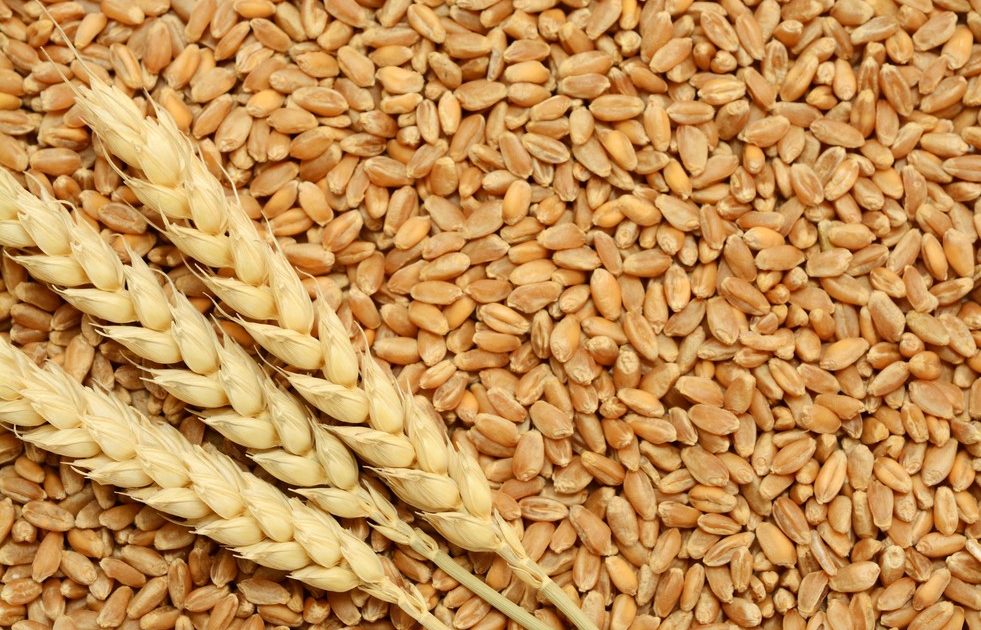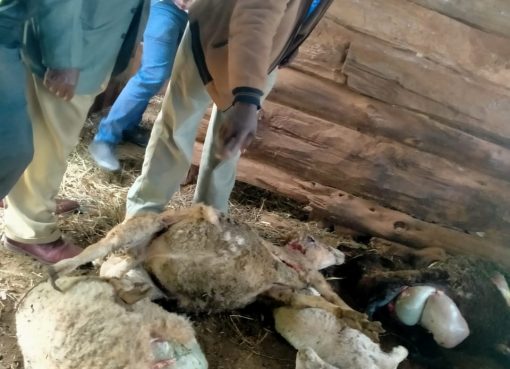The total local wheat harvested from July 2024 to March 2025 is 1,710,358 (90 kg) bags, the Agricultural and Food Authority (AFA) has today said.
Millers have mopped up 1,388,762 bags from August to date and the total available wheat with farmers and Marketing Agents is about 321,596 bags, with the bulk being in Upper Narok, being 130,828 bags.
In a press release this afternoon giving the status of wheat imports, AFA says the remaining wheat to be harvested in Upper Narok and Timau 2 is projected at 80,000 bags.
“In the last eight months, the total amount of wheat imported was 1,407,129 MT (15,634,767 bags) against a projected allocation of 3,246,000 MT (36 million bags),” the statement says.
According to AFA, the facts on local wheat production, which the country has been importing over the last 15 years, show that the national wheat demand is 2.2 – 2.4 million metric tonnes annually.
The country produces about 8 per cent of total consumption while 92 per cent is imported.
According to AFA, Kenya’s annual wheat production was 135,000 MT in 2023 against a consumption of 2,200,000 MT, which has been increasing in the last five years and the deficit of about 1.9-2.2 MT has been filled through imports, majorly from Russia, Ukraine and the EU.
A survey conducted by AFA from February to March 2021 established that production had been declining over the years with increasing imports.
Production decreased from 256,000 MT in 2010 to about 180,000 MT by 2020 for example.
During the same period, imports increased from 845,000 MT to 2,200,000 MT and this scenario has been attributed to increasing costs of production with a disproportionate increase in farm-gate prices, low productivity, land subdivisions and short land leases that cannot support modern technologies such as conservation agriculture.
AFA says that the government under BETA is fully addressing these challenges through the subsidised fertiliser programme, enforcement of minimum guaranteed prices, e-Extension services, soil testing and improved seed varieties.
The programme has seen local wheat production increasing for the last three years and just yesterday CGA, CMA, Marketing Agents and the Government held a meeting and the CS, Ministry of Agriculture and Livestock Development, directed that all wheat in stock be sent to NCPB stores nearby by today.
Kenya is a key member of the East African Community (EAC) and is a signatory to the various protocols and instruments and an active member of both the Customs Union and Common Market.
Wheat is classified as a trade-sensitive product in the EAC’s Common External Tariff (CET), an instrument commonly used in trading arrangements where the cost of importing goods, products or services from outside a trading bloc is higher for items listed in the sensitive schedule, to primarily protect local producers, industries and consumers from unfair competition, cheaper imports or even dumping.
AFA says that sensitive products attract a higher interest rate of 35 per cent as opposed to 25 per cent and that Kenya, having witnessed the gradual decline in local wheat production since the 1990s, but with a commensurate rise in consumption of wheat and wheat products, decided to negotiate a lower rate of import tax under the CET of 10 per cent to allow wheat imports to meet the rising consumption demand while also rejuvenating the local production.
The objective of Kenya’s application was to increase local wheat production and reduce overreliance on imports and what this means is that since 2010, with the advent of the new constitution, Kenya instituted the Wheat Purchase Scheme (WPS), launched in January 2010 which obligates millers to purchase all the locally grown wheat at set prices, pay a duty of 10 per cent instead of 35 per cent , and also grant the millers quotas on a pro rata basis, to import wheat to fill the gap.
WPS was later transferred to AFA on 1st July 2020 and the National Treasury witnessed the agreement between the Cereal Millers Association (CMA) and the Cereal Growers Association (CGA), even as other EAC member states import at 10 per cent without such a precondition.
Agriculture and Food Authority (AFA) is a State Corporation established to develop, regulate and promote scheduled crops.
By Wangari Ndirangu





